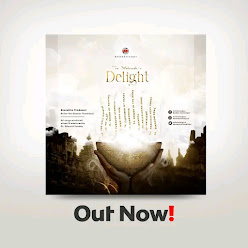The correct date of Jesus' birth to the world is obscure, as the Bible does not give points of interest with regards to the dates of either His birth to the world or origination. Be that as it may, in the second century AD, a Roman Christian student of history named Sextus Julius Africanus determined Jesus' birthdate to be December 25 (nine months after Jesus was conceived, as indicated by Africanus). Regardless of the presumptions made by Africanus' line of reasoning, the date of December 25 was broadly acknowledged.
At the season of Christ, Roman culture effectively commended an occasion in December: Saturnalia regarded the god Saturn and was praised from December 17 to about December 24. Afterward, the Romans started observing Sol Invictus or the "Unconquered Sun," related with the winter solstice and saw on December 25. At the point when Rome in the long run established Christianity as the state religion in the fourth century, the Roman church changed over Saturnalia and Sol Invictus to a Christian occasion, the Feast of the Nativity, so as to remember Jesus' introduction to the world, hence giving a profoundly positive option in contrast to an agnostic festival. The corrupt traditions and intemperance related with Saturnalia were "tidied up," and a portion of the traditions were assimilated into the festival of Christmas. Christians have "reclaimed" December 25 and have commended it as the introduction of Christ as far back as the fourth century.
Given the affiliation Christmas had with the old agnostic logbook, the inquiry at that point moves toward becoming, "Since Christmas imparts a date to an agnostic occasion, is it satisfactory for Christians to commend it?" It is imperative to take note of that Christmas, Saturnalia, and Sol Invictus were all particular occasions; they were never indistinguishable to one another. Likewise, albeit a few components of Christmas festivities (e.g., chimes, candles, holly, and yule designs) are referenced ever of love, the utilization of such things in a single's home not the slightest bit shows an arrival to agnosticism. Christians basically observe Christmas to recall the birth of our Lord and Savior, Jesus Christ. Observing Christmas involves matter, conscience (see Romans 14:5).






![[Must Read] "Can A Woman Be A Pastor Or Preacher?"](https://blogger.googleusercontent.com/img/b/R29vZ2xl/AVvXsEhctf9hc8aetN676kVmXs6WmmD8EglRXcCiLjlfbmHWTNaQeVyx-6mrpvX5Zha1NYHY9OhN63cff8fDzdfhnVmfs-rQ66kSvH5U0JHSbAKy6AapZSWwkatRcM1Nb-W06nAUh99xpVEP0eSv/s1600/IMG_20181226_214206_124.JPG)
No comments:
Post a Comment